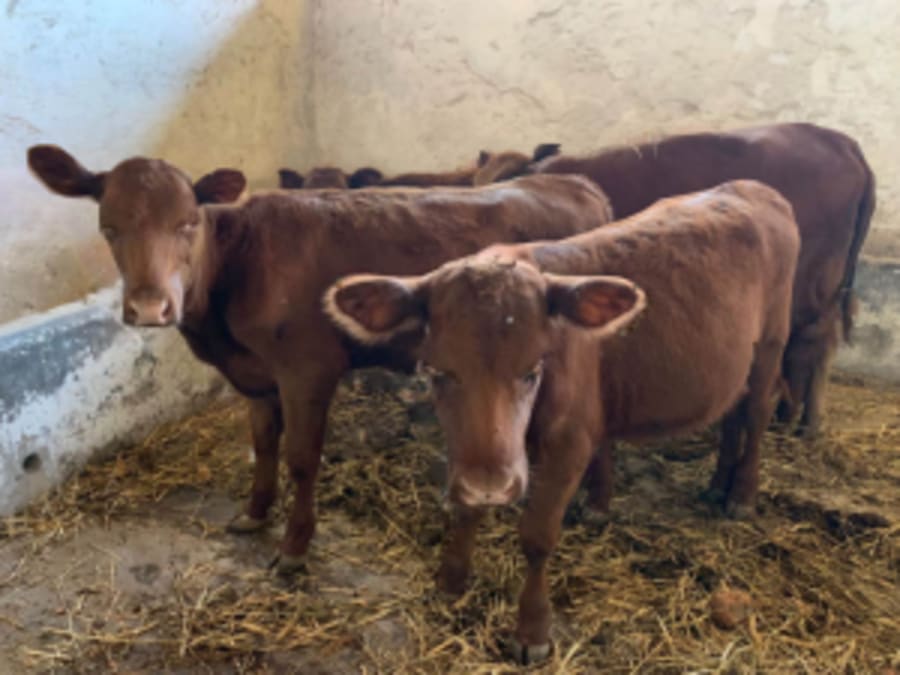Yom Teruah, Day of Trumpeting – What is it and how is it connected to Rosh Hashanah?

This weekend, Jews worldwide will observe the holiday of Rosh Hashanah, literally “head of the year" – a celebration of the new year according to the rabbinic Jewish calendar.
The holiday is seen as the beginning of the year since rabbinic tradition teaches it is the day that God created the universe.
Rosh Hashanah is typically observed for two days and begins with the Ten Days of Awe, which culminate in Yom Kippur, or the Day of Atonement.
During the Ten Days of Awe, and even beforehand, Jews seek forgiveness from each other and from God.
In Rabbinic Judaism, God inscribes the fate of each human being on Rosh Hashanah for the year ahead, deciding whether they will receive good or bad, and whether or not they will be forgiven, and seals that fate on Yom Kippur. For that reason, Selichot prayers begin even before the month of Tishri and continue up to Yom Kippur.
Due to the belief that one's fate is sealed for the next year during the Days of Awe, many Jews will greet each other in the days leading up to the holiday, with the greeting “G’mar chatimah tovah!” which is to say, 'May your name be sealed [in the Book of Life]!'
It is also customary to celebrate Rosh Hashanah with dishes such as a fish head or ram’s head, a play on the word "rosh" which means head, as well as the Torah passage where God promises to make Israel “the head and not the tail” if they obeyed his covenant commands.
And the Lord will make you the head and not the tail, and you shall only go up and not down, if you obey the commandments of the Lord your God, which I command you today, being careful to do them.
Deuteronomy 28:13
Sweet foods such as apples with honey are also a traditional part of the Rosh Hashanah meal, along with the blessing “May it be your will to renew for us a good and sweet year.”
Since Rosh Hashanah is considered a Shabbat (Sabbath), challah bread is served as part of the meal. However, instead of the traditional woven shape, the challah for Rosh Hashanah is round, representing the cycle of life and the cyclical nature of each year.
In addition to the regular daily prayers, there are special prayers, as well as a commemoration of the original holiday with the blowing of the shofar, the ram’s horn. Because of the biblical command to blow the trumpet on Yom Teruah, the rabbis say the shofar must be blown in every settlement in the land where Jews live.
If Rosh Hashanah does not fall on a Shabbat, or Saturday, it is also traditional to perform the Tashlich ceremony. In this ceremony Jews go to a body of water and throw bread crumbs onto the water, which represents the promise of God to “cast their sins into the depths of the sea.” (Micah 7:19)
Rosh Hashanah is not a biblical name by origin.
In the Torah, the first day of the month of Tishri (or the 7th month) is called either Yom Teruah (Day of Trumpeting) or Zicharon Teruah (Remembrance of Trumpeting).
On the first day of the seventh month, you shall have a holy convocation. You shall not do any ordinary work. It is a day for you to blow the trumpets. Numbers 29:1
Speak to the people of Israel, saying, in the seventh month, on the first day of the month, you shall observe a day of solemn rest, a memorial proclaimed with a blast of trumpets, a holy convocation. Leviticus 23:24
The term Rosh Hashanah does not appear in the Torah, although the terms Rosh HaChodashim (Head of the months [of the year]) and Rosh Chodesh (Head of the month), do occur. Rosh Hashanah is used in Ezekiel 40 but apparently in reference to the month of Nisan.
There is a strong connection, however, between the shofar (ram’s horn trumpet) and Yom Teruah.
While the Hebrew word rua, from which Yom Teruah gets its name, simply means shouting or loud noise, as in the shouting of the people at Jericho (called terua in Hebrew - Joshua 6:5), there are multiple associations within the biblical text with the blowing of trumpets or shofars and the celebration of Yom Teruah. There are also many places where the word refers to a shout of joy or triumph.
In biblical times, the trumpet blast or blowing of the shofar was primarily a way to call for attention or signal something important about to occur.
So, when God descended on the mountain in Sinai, his coming was announced with the sound of a shofar blast which caused the people to be afraid.
He wanted their attention.
In Numbers 10, we see that God commanded the Israelites to make silver trumpets to be used to summon the people, or to instruct them to set out from the camp.
He wanted their response.
Thus, Yom Teruah is about the people of God giving him their sacred attention and being prepared to respond to his instruction.
The blast of a trumpet and the cry of alarm (terua) are associated with the Day of the LORD, as seen in Joel 2:1.
A shout (terua) of joy is connected with the coming of the Anointed King, while the blowing of a trumpet is connected with the deliverance of Jerusalem in Zechariah 9:9-16.
According to the Apostle Paul, the resurrection of the righteous will come at the blowing of the “last trumpet” in 1 Corinthians 15:51-52.
In 1 Thessalonians 4:16-17, Paul combines the trumpet and the shout (rua) saying that the trumpet blast will be accompanied by a “shout of command” when Jesus gathers His holy ones to Himself.
So, on Yom Teruah, we wait attentively and obediently for the coming of the LORD, and the restoration of His people. We wait for the judgment of God on evil, and the opening of the Book of Life.
Maranatha! (Aramaic for 'the Lord is coming.')

J. Micah Hancock is a current Master’s student at the Hebrew University, pursuing a degree in Jewish History. Previously, he studied Biblical studies and journalism in his B.A. in the United States. He joined All Israel News as a reporter in 2022, and currently lives near Jerusalem with his wife and children.













